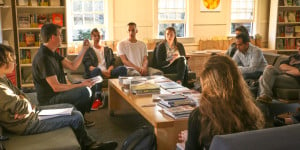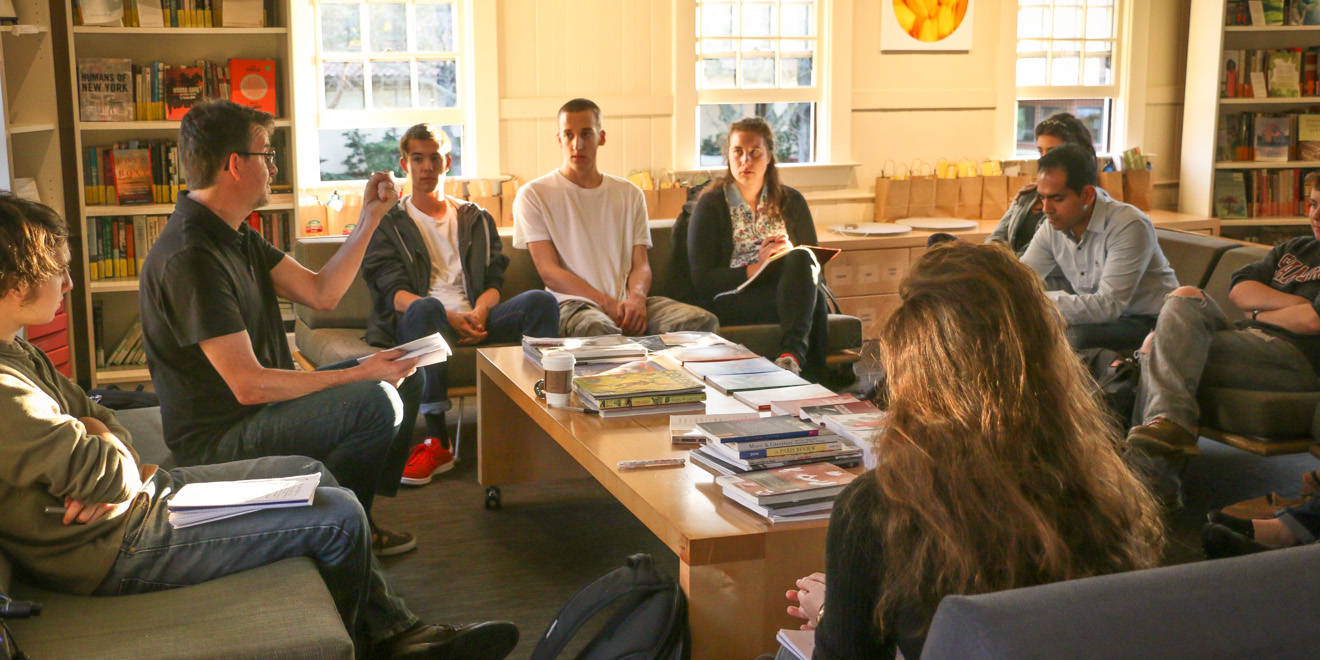
Next Monday, Feb. 23, the Stanford members of the International Socialist Organization (ISO) will host an event called “What They Don’t Teach You in Econ: Marxist Economics 101.” Malachi Dray ’18 will present a Marxist analysis of how capitalism works and speak about what’s wrong with it, according to socialist theory.
“The econ classes here teach students that welfare is automatically bad for poor people,” said ISO member Sid Patel, a second-year Ph.D. student. “The basic understanding of how the economy works at this campus — most of it is taught through the framework of ‘Capitalism is the best thing that’s happened in human history ever, and it is the best thing that should stay forever.’”
To combat what the ISO members perceive as pervasive conservatism on campus, the Marxist Economics event will introduce attendees to an alternate economic theory and seek to show its viability.
“It’s the talk I was looking for when I was a freshman and couldn’t find — to just get a primer on Marxist economics,” said ISO member John West ’17.
Two weeks later, on March 9, West and Stephanie Navarro ’15 will lead an event focusing on capitalism and the environment. All ISO events this quarter are held in the El Centro lounge at 5 p.m.
The presentations are part of the Stanford ISO’s current series of events and are open to community members. By talking about different aspects of capitalism and socialism, the group hopes to convince people of the logic of socialist politics.
Small but growing
The Stanford ISO is a registered student group and currently consists of four students who are also individually registered members of the international organization. In order to officially become a branch of the ISO, the group needs to have five members. However, the current members hold meetings and host events with usually 10 to 30 attendees who aren’t officially members but are interested in the group’s work.
As an international organization, the ISO seeks to build a network of revolutionary socialists and activists in communities throughout the country. It opposes capitalism and the injustices it creates and ultimately stands for the idea that, to build a just world, it is necessary to fundamentally change the capitalist system.
Patel and other ISO members said they believe that Stanford has a special need for confident socialists, especially with the University’s strong ties to Silicon Valley, its history of turning out billionaires and its perceived atmosphere of privilege. To change the world, people can’t just invest in tech startups, members said, but that’s a common attitude they have encountered.
At the most recent ISO meeting, however, visitors talked about experiences that told a different story. Patel said that many spoke about not necessarily wanting to join a tech startup and or become a business executive or entrepreneur due to more humble backgrounds.
“We are trying to find the people that doesn’t really fit for and amplify that voice on campus,” Patel said.
A different perspective on activism
According to ISO members, socialists are very involved in the activist movements taking college campuses around the country — the Stanford group, for example, was involved in Stanford Out of Occupied Palestine’s divestment campaign.
“To be honest, that’s why I ended up joining the ISO — just the idea that it would let me unite all of those causes under one set of politics that made sense to me,” West said. “It felt like something that empowered me to work in solidarity with all of those [groups] in a way that felt kind of cohesive.”
At the same time, the ISO sees all of the social issues that students are protesting as part of the larger problem of capitalism. In the end, they believe it will take revolutions, not reforms, to change things.
“If we want to fundamentally transform society, we have to address the question of political power,” Patel said. “We can make a reform here and there, and we should, but there is an entrenched elite that has a state around them to protect their interests when push comes to shove.”
Patel also spoke about the idea that the working class can change the world.
“For a lot of people, they think politics is about voting for a politician,” Patel said. “We think political activity is about self-organizing students and workers everywhere to fight for the things we need. In this country, class struggle, like challenging bosses and strikes, is at kind of a historic low.”
Challenges to socialism
West said that he has talked to many people who mostly share his political opinions, but when he brings up the word “socialist,” that seems to be crossing some line. Navarro explained that since most Americans have grown up with the idea that capitalism is the right thing for society, overcoming instinctive prejudice against alternative economic systems is difficult.
“One of the biggest things is… getting people to get past that whole narrative we’ve been taught our whole life – that there’s one way to govern, or there’s one way to have a societal structure, and this is the way, and we’re living it,” Navarro said.
Even though getting people to listen can be hard, the ISO members believe this is an ideal time for their cause, given the current climate of activism. And even though they feel Stanford is a hostile place for socialist politics in some ways, the audiences at their events seem receptive.
“To be honest, I think we’re kind of just getting started here,” Patel said. “Our goal is to amplify a socialist voice in the home of neoliberal entrepreneurship, which is Stanford. So as we get bigger, as we get stronger, I expect more people to pick an ideological fight with socialism, and I welcome that.”
Contact Emma Johanningsmeier at ejmeier ‘at’ stanford.edu.
